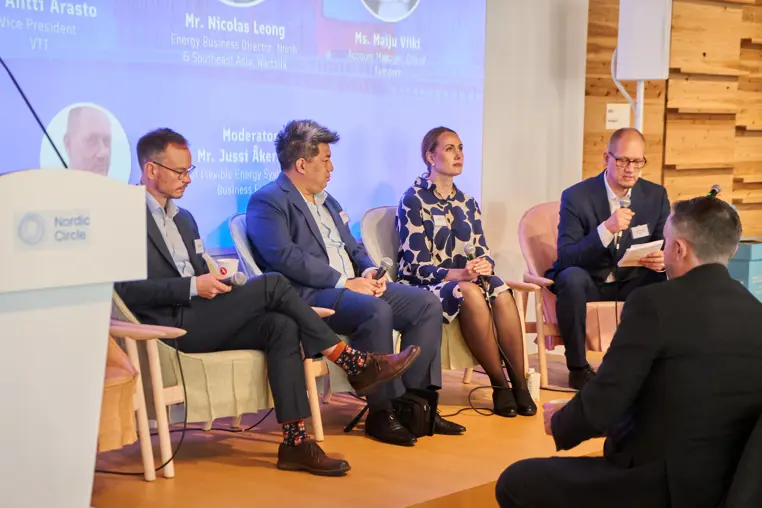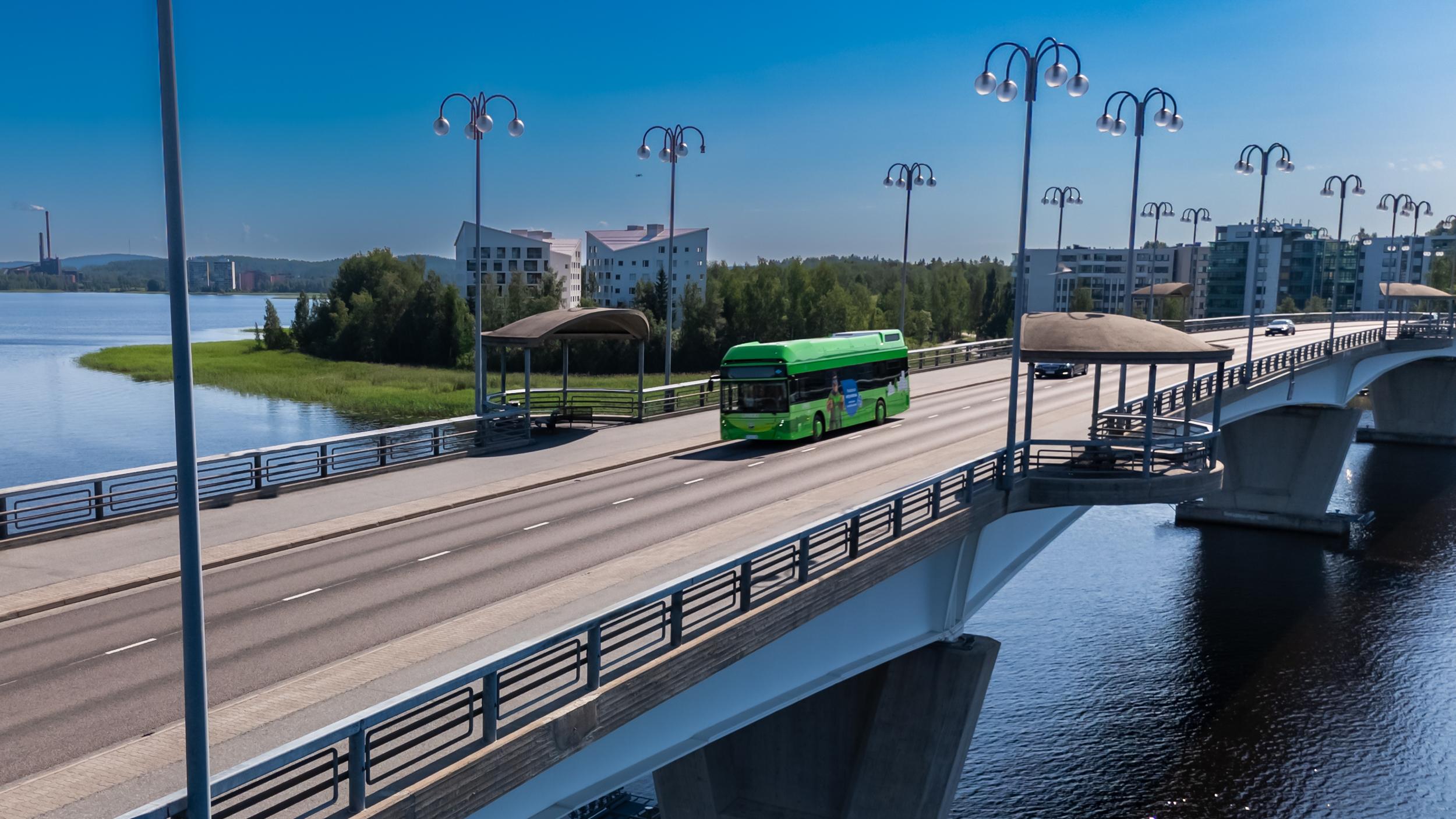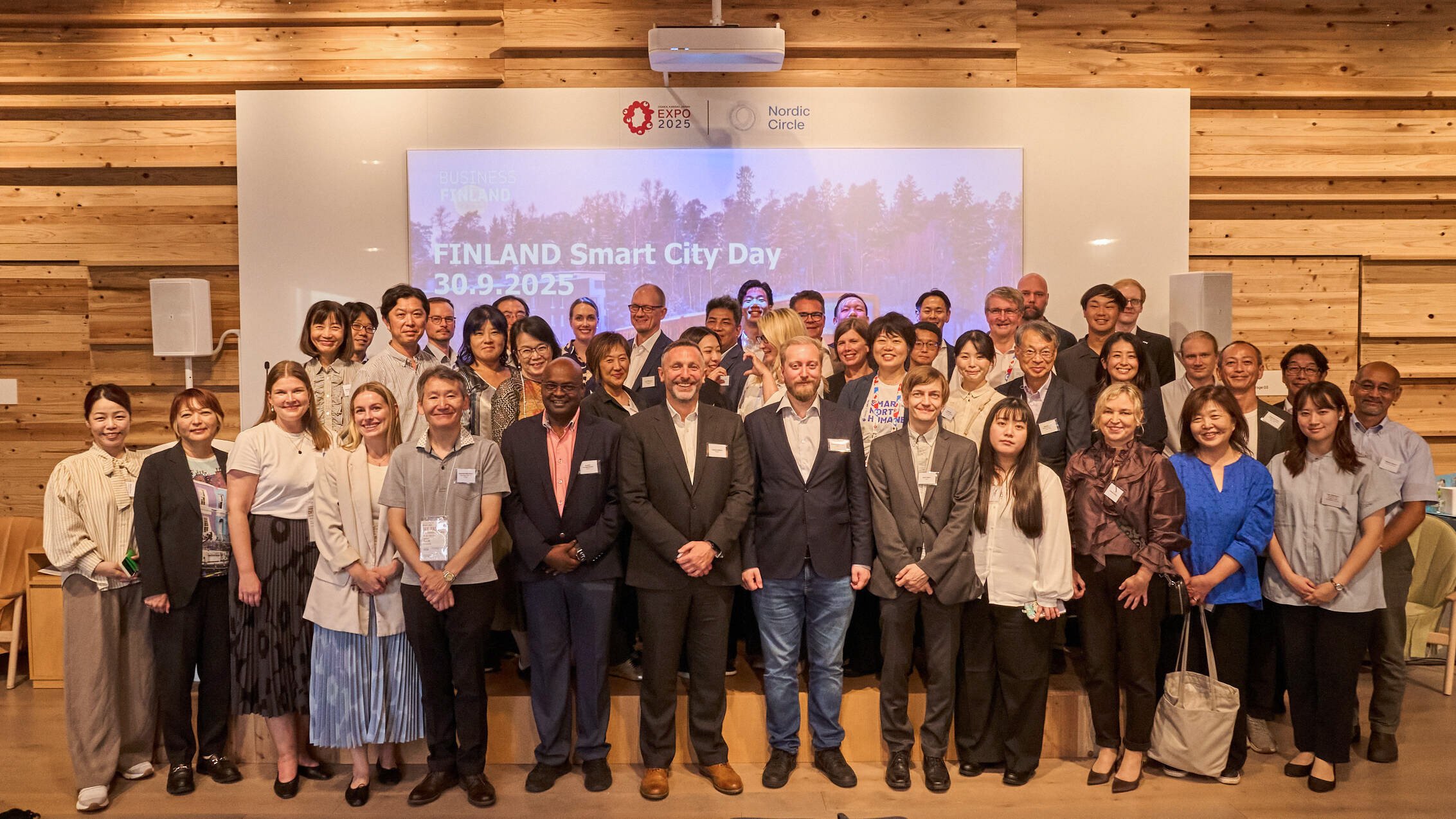Smart Energy, Thriving Cities: Empowering Urban Sustainability with Finnish Innovations
As the world urbanizes and grapples with climate challenges, the call for resilient, efficient, and sustainable urban systems has never been stronger. Finnish companies and cities are stepping up, blending cutting-edge technology, collaboration, and human-centric approaches to create smart city solutions from the world’s happiest country that resonate globally. These aspects were highlighted during Smart Cities Day at Expo 2025 Osaka in the Nordic Pavilion.
News 3.10.2025

Finland’s energy mix includes renewables, nuclear, geothermal, and advanced heat technologies, with nearly every household equipped with smart meters for real-time energy management. Global trend of urbanization is creating challenges to the infrastructure and energy. Cities account for 78% of global energy consumption and over 60% of greenhouse gas emissions. With two-thirds of the population projected to live in urban areas by 2050, innovative solutions for energy, mobility, and built environments are imperative for greener, smarter cities.
Finnish Expertise in the Japanese Market: Driving Transformation with Collaboration
Wärtsilä is a global leader in innovative technologies and lifecycle solutions for the marine and energy markets. The company and initiatives like WISE (Wärtsilä-led Wide & Intelligent Sustainable Energy) are at the forefront of developing energy systems tailored to meet the challenges posed by modern urbanization and energy transition. By leveraging flexible and holistic energy solutions, Wärtsilä is enabling cities, countries and regions to decarbonize without compromising reliability or cost-efficiency.
Nicolas Leong, Energy Business Director for North & Southeast Asia from Wärtsilä explains:
"Global energy systems are shifting towards renewables like solar and wind, but since these sources are intermittent, flexible balancing power is essential. Our engine-based power generation technology can quickly ramp up when renewables are not available and ensure grid stability and reliability."
He continues: "Flexible balancing power will play a key role in the global energy transition and ensuring a resilient energy infrastructure. WISE is an initiative aiming to develop zero-emission balancing power to accelerate decarbonization of the energy sector. It embodies the Finnish way of co-innovation, fostering partnerships that bring together technology providers, energy and power plant experts, academia, research institutes, software developers and local governments to create smart energy solutions for future cities, countries and regions. In Japan, Wärtsilä has introduced flexible combined heat and power solutions at sites such as Toyosu Market and Saitama , and is working with Tokyo Gas to support their goal of increasing the share of renewables to 40–50% by 2040."
Finnish cities Jyväskylä and Oulu as Testbeds in Urban Transformation
Finnish cities Tampere, Jyväskylä and Oulu exemplify the nation's commitment to developing smart city solutions that enhance both sustainability and citizen experiences.
City of Jyväskylä has established itself as a trailblazer in collaboration and hydrogen-driven sustainability. Together with TOYOTA GAZOO Racing World Rally Team, and the Toyota Mobility Foundation created Cefmof partnership shows that sustainability in urban mobility and energy systems cannot be achieved in silos.
Cefmof introduces clean transportation and provides residents and operators with experience and practical information on the possibilities of using hydrogen. First hydrogen buses started operating in Jyväskylä in September 2025. The hydrogen bus project is closely linked to the construction of a hydrogen refueling station in Jyväskylä, first one of its kind in Finland. 
Hydrogen buses have started operating in Jyväskylä in September 2025. Photo: Juha Hirsimäki
City of Oulu, as a pioneer in smart technologies and European capital of 6G, has implemented data-driven approaches to optimize both infrastructure and services, creating urban systems that actively engage and benefit citizens.
In these example cities, Finnish innovation emphasizes the importance of including residents in sustainable urban development. From hydrogen-powered infrastructure to smart energy models, the approach ensures that technology enhances everyday life without creating disruption. For Finnish cities, decarbonization is not only about cutting emissions but also about maintaining high living standards and fostering vibrant, attractive communities.
Working Towards the Same Goal – Locally and Internationally
The country hosts a unique ecosystemic model that thrives on public-private partnerships and inclusive solutions. Finland’s commitment to innovation extends to international collaboration, but also on strong local ecosystem thinking. Smart Cities and Flexible Energy Systems programs connect domestic and international companies and research institutions to foster innovation across digitalization, electricity, heating, cooling, and fuels.
Jussi Åkerberg, the Head of Flexible Energy Systems program at Business Finland states:
"The strong digital infrastructure and integration of smart grids, energy hubs, and digital twins enable Finnish urban areas to optimize energy use and adapt to fluctuating demands. Data centers in particular will benefit from and contribute to grid flexibility, and their waste heat is repurposed for regional heating and cooling. Through demonstration projects, such as hydrogen buses in Jyväskylä and the development of green hydrogen plants, Finland supports both domestic and Japanese companies in joint ventures and technology exchange."
"Energy transition is a long-term journey requiring cooperation among power producers, regulators, companies, and researchers. Building sustainable energy systems depends on collaborative relationships and ongoing knowledge exchange between partners", Åkerberg continues.
Finland’s approach emphasizes that global energy and sustainability challenges require cooperation and trust—qualities at the heart of the Finland-Japan relationship, which seeks shared solutions for a carbon-neutral future.
Participation in events like the Osaka World Expo showcases Finnish companies and expertise, aiming to foster two-way partnerships. Smart City Day at Expo provided an exceptional platform to gain insights into the latest trends in the smart city sector and to explore opportunities for collaborative ventures in business and research between the two nations, Japan and Finland. Companies at event included Wärtsilä, City of Tampere, City of Oulu/Business Oulu, VTT Finnish Technical Research Centre, Vilpe and Helvar.
Smart City Day gathered a great group of experts at Nordic Pavilion
Finland at Expo 2025:
Finland participates the Osaka-Kansai Expo 2025 together with the Nordic countries Denmark, Iceland, Norway, and Sweden. Project is operated by Business Finland. Main partners of Finland include Nokia, Ministry of Agriculture and Forestry, Finnair, Metsä Group, Metaverse Day, City of Jyväskylä, City of Oulu and 5G Mökki.